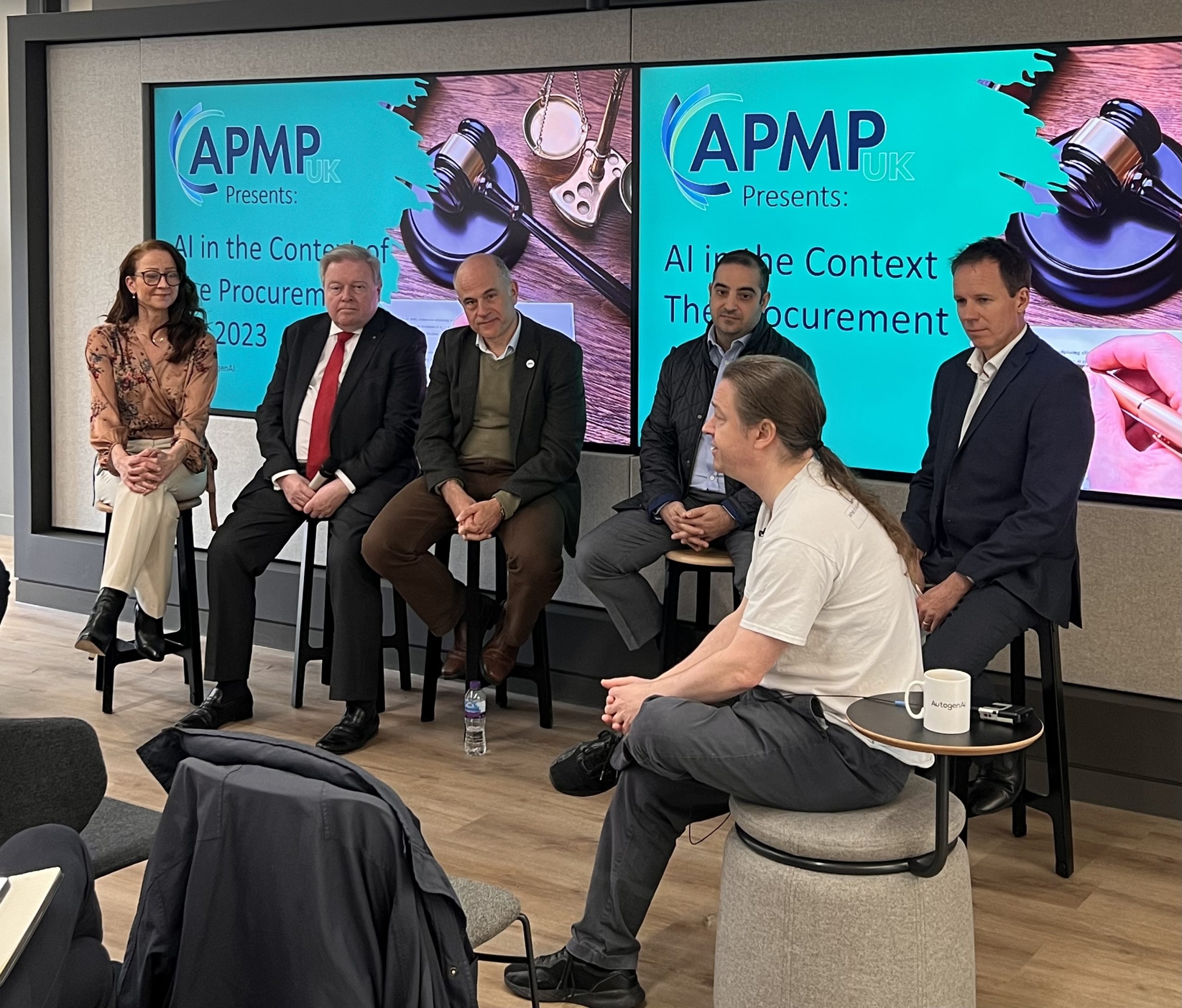At the same time, whatimpact was invited to be a part of APMP UK’s (the leading association for bid writing professionals) Procurement Act Panel Discussion in London last week. There was a compelling discussion centred around the role of Artificial Intelligence (AI) in procurement and the Procurement Bill being prepared around it. Our CEO, Tiia Sammallahti, sat on the panel and actively voiced the perspectives of the social value industry.
As public procurement law changes, the reforms will shake up the outdated system. Ultimately the government aims to improve the way procurement is done. Read The Procurement Act 2023 here.
During the Procurement Act Panel Discussion, Martin Traynor, former small business representative for the Cabinet Office, highlighted a significant challenge: nearly 80% of government tender applications consist of repetitive “tell us once” questions. These questions consume considerable time in the application process. AI-driven tools offer a solution by automating these tasks, thereby streamlining the bidding process and enabling suppliers to allocate their time more efficiently. This efficiency allows suppliers to submit exemplary bids within tight deadlines, showcasing their professionalism and competence to government procurers. Consequently, suppliers gain the opportunity to focus on the remaining 20% of the bid, including aspects such as the social value portion of the bid that makes up 10% of the application. This could be the difference between winning and losing a bid.
Heading
AI has begun revolutionising the way all professionals work. It is growing more recognised in the bidding process for government tenders amongst suppliers. Following the introduction of the latest Procurement Act PPN 10/23, organisations are viewing AI as a means to gain a competitive edge. As AI allows for unprecedented opportunities for success. AI tools in procurement vary from enhancing efficiency and quality in the application process to optimising decision-making. Some suggest that expensive AI-enhanced procurement tools are benefiting larger suppliers with bigger budgets to purchase them. It was also stated that organisations of all sizes and types can access free and low-cost AI-enhanced tools, such as whatimpact.com. In the first wave, the Public Sector did not utilise technology for evaluation, however times are changing. The common consensus was that AI is here to stay!
For more on improving the transparency of AI use in procurement visit the PPN 02/24 here.
Heading
The panel brought up common concerns surrounding AI discrimination in the bidding process by the Public Sector. Concerns which possibly stem from the perception of AI-supported bids being ‘not true’ or ‘manipulated’. At the same time, there was a consensus that AI cannot improve the product or service being offered. Nor can it invent social value offering fulfilling PPN 06/20 social value requirements. Therefore, as AI becomes more familiar to the wider audience, we expected the concerns to dilute over time. It was highlighted that the Procurement Act enhanced requirements for fairness and transparency in procurement aren’t jeopardised by using AI.
Heading
While AI can enhance the social value plan quality in bids, Tiia Sammallahti emphasised that it cannot solely create them. The business itself must formulate outcome-specific, tangible, KPI-targeted, and locally relevant targets. Whether it involves tailoring bids to prioritise environmentally friendly practices or supporting local communities. AI can truly assist in various ways and empower suppliers to align their practices with broader societal goals. However, they cannot decide on investments in contract-specific, locally relevant activities. AI cannot fully grasp the depth of social value necessitates. So, human intervention is paramount to ensure accuracy and to define outcome targets. To better understand the complexities of social value visit our webpage Social Value Explained.
To find out more on social value in government tenders, visit our webpage HERE or to watch the full Procurement Panel Discussion, on youtube HERE!





